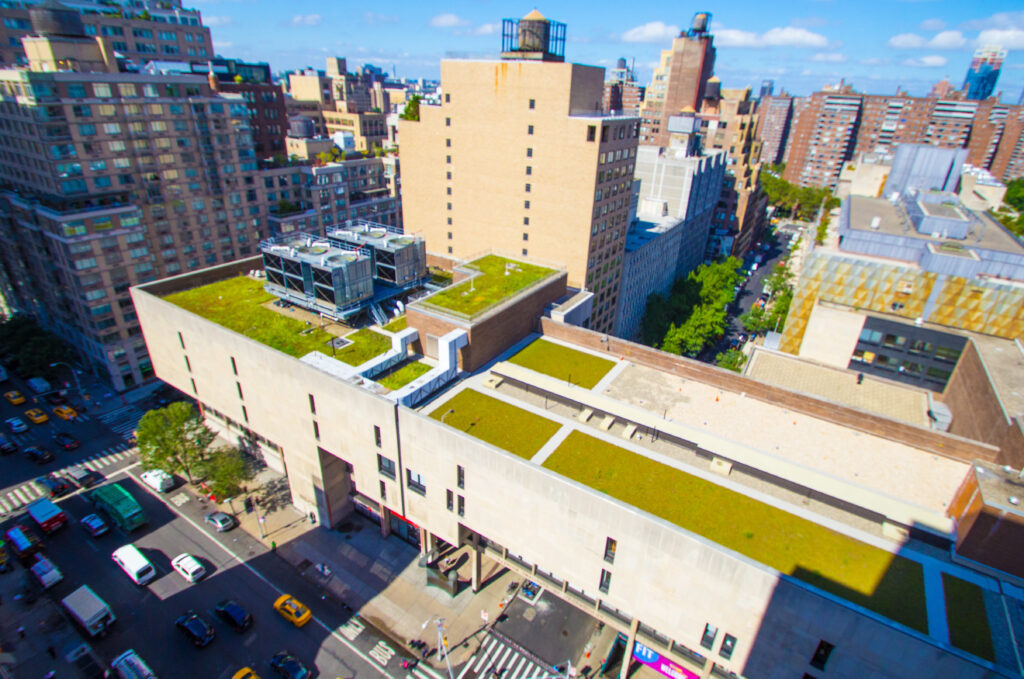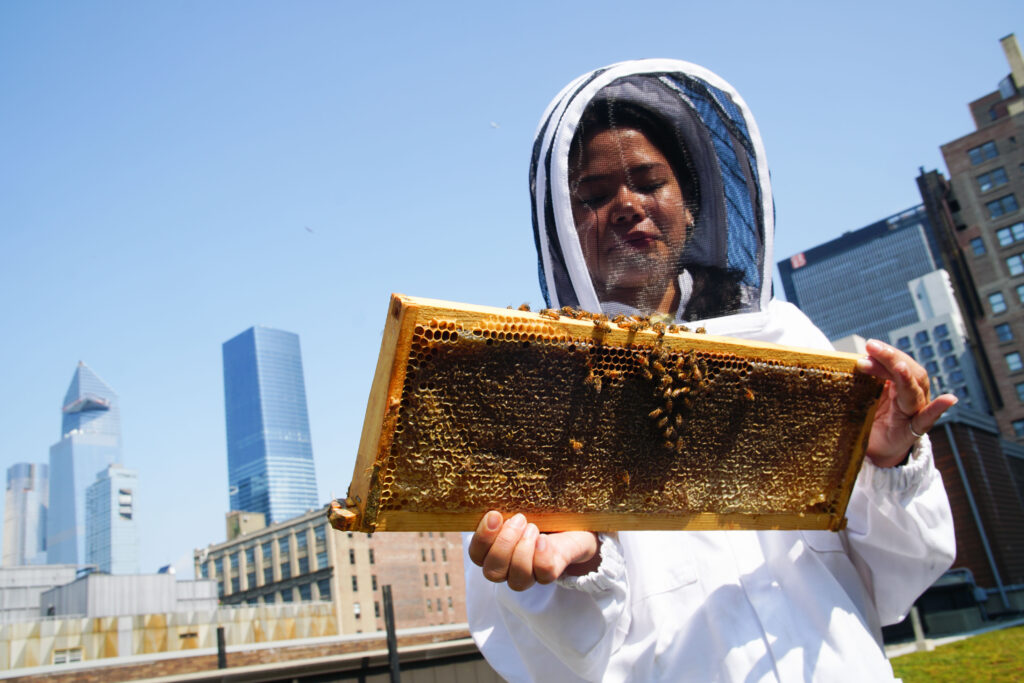Sustainability At FIT
Meeting the Mayor's Challenge
In 2001, then-Mayor Michael Bloomberg challenged New York City colleges and hospitals to reduce greenhouse gas emissions by 30 percent by 2030.
FIT succeeded first, achieving a 40 percent reduction in less than four years. FIT was first again in the next challenge—reducing the college’s carbon footprint by another 55 percent, seven years ahead of schedule.
How did we do it? New steam-powered heating, ventilation, and cooling systems; sensors that turn off lights when rooms are empty; and using less energy on the hottest days, when air conditioning drains the city’s available power.
We not only save energy; we earned back $1.25 million—so far—from the City of New York for outstanding performance in reducing power use! And we’re a test case for other buildings in New York and around the world in reducing greenhouse gases.

40%
greenhouse gas reduction in <4 years

Greener Roofs, Cleaner World
New York City is a few degrees warmer than its environs due to “heat island effect,” but FIT’s 1 1/3 acres of green roofs are helping lessen this. The roofs benefit the campus and the environment by insulating the buildings, decreasing the need for heating and air conditioning, improving air quality, and reducing the college’s carbon footprint by absorbing carbon dioxide. They also soak up water from heavy rainfall, preventing untreated sewage from flooding sewers and flowing into the Hudson and East rivers.
Bee Happy
With the help of the Honeybee Conservancy, FIT installed two beehives on a campus green roof. The bees have helped grow New York City’s honeybee numbers at a time when global bee populations have been dropping dramatically. The FIT Hives project also fosters education about bees and their role in the environment—and in the fields FIT teaches. The college’s bees have produced more than 20 pounds of honey—and that’s hard work. A mere tablespoon of honey is a lifetime’s labor for two bees.

